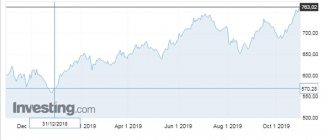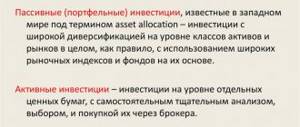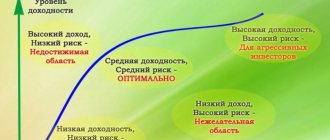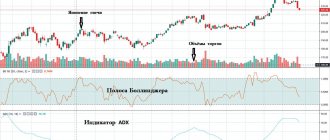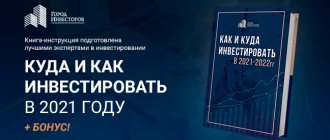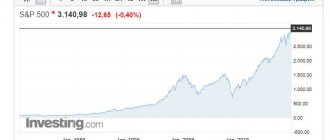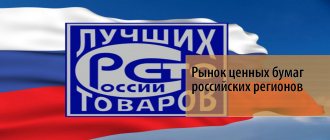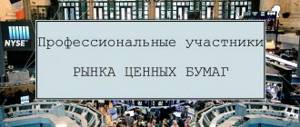Author: Yango.Investments
We explain exactly what changes private investors can expect next year in connection with the categorization law and new restrictions from the Central Bank, why private investors will have to upgrade their level and pass testing for the category in order to maintain access to a wide list of investment instruments, and is it worth it? now take care of obtaining the status of a qualified investor.
READ IN THE ARTICLE:
✔ Categorization law: what will change in 2021? ✔ What does all this mean for the investor? ✔ How can an investor improve his level?
© When using site materials and quoting - a link with a URL is required
Who is it
A qualified investor is a market participant who, in addition to standard instruments, can carry out transactions with special financial assets.
The logic is that an investor with the prefix qualified has experience and financial capabilities, is aware of the risks and understands the full responsibility of trading in riskier instruments.
What does the status of a qualified investor give?
A qualified investor has the opportunity to operate with a larger number of instruments than an ordinary (unqualified) market participant. In addition, the status provides the right to invest your money in high-risk funds and gain access to information that is not available to other participants.
There is an opinion that CI also has great opportunities for opening short positions on instruments. However, this is not true. If an exchange or broker prohibits opening a short position on an instrument, then the participant’s qualifications will not affect this option in any way.
Advantages and disadvantages
The main advantage is access to more assets. This is most relevant for market participants with large sums of money.
There are no particular disadvantages here. Recognition of a certain person as a qualified investor does not in any way prejudice his work in the financial markets. However, it should be noted that in order to receive it you need to meet certain requirements (which I will discuss a little later). And the second point: it should be borne in mind that working with some tools carries an increased risk.
Risks
Many instruments offered for trading to qualified investors have a higher risk profile. Hence the idea of protecting inexperienced participants with small capital from such assets.
However, many financial instruments are also available to unqualified participants, which carry very high risks and allow the use of large leverage. For example, these include most derivative assets traded on the derivatives market, such as futures and options.
Legislative regulation
Legislative regulation on the issue of assigning CI status to a market participant is regulated by the following acts:
- Federal Law “On the Securities Market”.
- Note:
In addition, the tax code and separate orders establishing classification for specific financial assets are indirectly involved in regulation.
Examples of Qualified Investors
Examples of qualified investors include:
- Central Bank of Russia;
- VEB;
- DIA;
- various investment funds;
- certain private individuals;
- NPFs;
- insurance companies;
- central banks of different countries.
Who can be considered a qualified investor?
Both legal entities and individuals who meet certain requirements can obtain this status. I will publish a list of these criteria below.
Do you need this status?
By and large, an ordinary private investor does not need such a status at all. Some instruments are too specialized to be traded by individuals. And some assets (for example, foreign securities) can be purchased in another way.
What are the advantages and disadvantages of this status?
So, you have received the status of a qualified investor in the securities market. Let's summarize the pros and cons.
Advantages of a qualified investor:
- Access to highly profitable instruments that are not available to ordinary traders.
- Having a license will make you a valuable employee for a company operating in the stock market.
- Receiving information that is classified will provide greater freedom of action. You will have the right to request a larger volume of reporting from issuers and take part in closed bidding. All this, coupled with the knowledge gained during training and in the process of work, will bring you invaluable experience, which, if desired, can be monetized by teaching beginners how to trade in the stock market.
How to get status
Now it's time to discuss how to become a qualified market participant. This can be done by contacting a broker or management company. Of course, only subject to certain requirements established by law.
Requirements for individuals
In order for a private investor to be recognized as a CI, he must have at least one of the following characteristics:
- The amount of personal funds in the investment account is more than 6,000,000 rubles.
- Work experience in a company whose occupation lies in the area of trading securities or derivatives is more than 3 years.
- At least 2 years of experience working in an organization that is itself a CI.
- Completion of 10 transactions per quarter, but not less than 1 transaction every month, the turnover of which exceeded 6,000,000 rubles.
- Higher education related to economics and one of the following diplomas - financial market specialist certificate, auditor certificate, FRM, CFA, insurance actuary certificate, CHA.
Requirements for legal entities
To be recognized as a CI, a legal entity must meet one of the following input parameters:
- Own funds from RUB 200,000,000.
- Over the last year, transactions amounting to at least 50,000,000 rubles, but the regularity of transactions is no less than 5 times/quarter or the regularity of transactions is at least 1 time/month.
- The company's revenue is from 2 billion rubles.
- Amount of assets from 2 billion rubles.
List of required documents
The list of required documents includes:
- application for recognition as a qualified investor;
- a document confirming compliance with any of the requirements necessary to be recognized as a qualified investor.
How to Bypass Qualified Investor Status and Buy Foreign Stocks
To buy foreign securities for an ordinary unqualified individual, it is enough to open an account online with a foreign broker. Russian brokerage firms with foreign registration are also suitable.
In addition, you can use structured products such as ETFs or mutual funds.
An example of obtaining and using qualinvestor status
Let's consider obtaining status using the example of trader Alexey, who is a client of VTB Bank and has an amount of 6 million rubles in accounts opened with this and another bank.
In addition, Alexey recently completed training and passed the exam for the FSFM qualification certificate.
Alexey has already opened a trading account with a VTB broker. Next, the procedure will be as follows:
- Receiving bank statements indicating the amount of funds. The statements must also contain the following information:
- passport details of the account holder;
- seal of the credit institution and signature of the employee.
Statements from different banks must be dated on the same date.
- Filling out an application, the template of which is downloaded from the bank’s website.
- Submitting a package of documents (application, statements and a copy of the certificate) to the bank office that provides investment services.
- Specialists review documents within 3 days. Alexey received an SMS about the positive decision on the 2nd day.
Obtaining a qualified investor at VTB makes it possible to make transactions with more than 10,000 assets traded on the NYSE, NASDAQ, LSE, etc. exchanges. Alexey makes transactions with Eurobonds, the yield of which is several times higher than interest on foreign currency deposits, as well as with structured products of VTB Bank :
As you can see, the commission for transactions with such instruments may be minimal or even absent. If the commission size is higher (say, 4%), then the list of assets included in the structured product will be larger - about 40 types of securities.
What to invest in for qualified investors
Financial instruments that CI can use include:
- foreign securities;
- foreign ETFs;
- Eurobonds;
- structural notes;
- investment units of closed mutual investment funds, etc.
The best brokers for buying and investing in shares
Here is a list of the best brokers.
Opening of Promsvyaz by Rick BKS Keith Tinkoff Finam
One of the mastodons of the market. Excellent web portal, very low commissions and adequate support. I recommend!
Investment department of a famous bank. There are no particular advantages, but there are no disadvantages either. Average.
One of the very first Russian brokers. The commissions are high, but there are interesting auto-following strategies.
Another very large broker. Good support and low commissions are their strong point.
Small but reliable broker. It is great for beginners because it does not impose its services and the commissions are very low. I recommend.
The youngest broker in the Russian Federation. There is a cool app for investors, but the fees are too high.
The largest investment company in Russia. The largest selection of tools, your own terminal. Commissions are average.
They charge low commissions with a high level of service and reliability. Most of them allow you to open an account online and provide special terminals for independent trading on exchange platforms.
When is it more profitable to open an IIS?
If an investor has an official income, he plans to save and use the account for a long time, then an IIS is suitable for him, with which he can receive an additional 52,000 rubles from his own taxes. This money can be reinvested in stocks, bonds and other financial instruments.
The main advantage of IIS is a tax deduction from the state.
There are two types of deduction:
Tax deduction type A
— deduction from the amount deposited into the IIS for the calendar year. The tax office returns this money to your bank account. They can be used in any way you like. For example, reinvest - invest again in exchange-traded instruments, stocks and bonds. How to get a type A deduction online on the tax website - read the step-by-step instructions.
Tax deduction type B
— exemption from personal income tax on income from IIS. Such a deduction is received upon closing an IIS if the account has been open for more than three years. The amount of accrued tax simply remains in the account.
Do you need it?
To understand the need to obtain CI status, you first need to know why all these restrictions on the purchase of securities and the necessary requirements to gain access.
In a nutshell.
A qualified investor is a category of investors who has the necessary capital. And most importantly, having knowledge and experience in trading securities in the financial markets. Allowing them to make informed choices when investing in risky instruments based on their own analysis.
In other words,
The Qualified Investor Act protects private investors from overly risky instruments. Where they can easily lose, if not all, then a significant part of the money.
And in all these requirements many inconsistencies immediately arise.
I’ll give you a few off the top of my head.
You have 6 million and automatically you become a qualified investor. Your grandmother left you an inheritance and you won the required amount in the lottery.
You're handsome! You have money - here's your badge. You can trade risky instruments.
Knowledge? Experience? What are you talking about? The law says it in black and white: If you have 6 million in your accounts, you are ready. ((((
This is from the same opera, as for example, a person wants to become a surgeon. He has a choice: go to medical school. Spend several years of your life gaining knowledge. And it is not a fact that he will be able to reach the end. And he shouldn’t be expelled in the second or third year.
Or you can go the other way. Open your own clinic. And immediately get “crusts”. And accept (my hand didn’t turn to write the word “treat”) patients.
There is equipment, a room, we even spent money on white robes, shoe covers and caps - come and get treatment. Tough.
Increased risks. Lack of CI status will prevent you from investing in risky projects (such as venture capital and hedge funds). Crap. What about the derivatives market? With its futures and options. And also leverage in trading. Yes, here you can lose all your money in literally 1 day. If you're lucky, within a week.
What about Forex? Did you trade with leverage of 1 to 100, and 1 to 500? There is simply no chance of survival here. And despite the fact that any schoolchild, pensioner or just a person who understands absolutely nothing about trading can throw in some money and lose all the money.
The risks are several times (or even tens or hundreds of times) higher than, for example, in purchasing foreign shares or ETFs (to which access is closed).
Turnover 6 million per year. Are you guys serious?
An ordinary trader with an average capital of 100-200 thousand (rubles, of course) can easily make such a turnover, not just in a year, but in a couple of months.
But this does not mean that he has become a Qualified Investor. It seems to me that if we take the annual turnover as a basis, then we would probably also need to add successful (profitable) trading. Any fool can press buttons. Buy and sell. Then again. And again.
But making money (or at least not losing your account) is the lot of a few.
Our friend, a would-be dental surgeon, doesn’t want to study for many years. And he doesn’t have money to open a clinic. No problem. It is necessary to carry out about a dozen operations in a year. Cure caries, pulpitis, remove a couple of someone’s teeth (no matter which ones - sick or healthy). Nobody cares about the result. The main thing is statistics on the number of operations.
Conducted the required number of experiments on patients - get crusts. Well done. Now you are an honored doctor.
The most interesting. Think about it - “Qualified investor”. Inconsistency between the name and requirements to obtain this status.
Who is an investor? A person who makes long-term capital investments for the purpose of making a profit.
The key word in this phrase is “Long-term.”
I have a friend who has several million (if not tens of millions) in his accounts. Makes only about 5-6 transactions a year. It is supported by the principle of passive investing. And he makes transactions only to replenish the portfolio or annual rebalancing. If we do not take into account the amount of capital, then according to the requirements, if he needs to obtain a CI, he will not be able to do this.
The law requires (one of the conditions for obtaining CI status) to make at least 10 transactions per quarter throughout the year.
That is, on average, 1 trade once a week. Damn, this is trading in an explicit form. What kind of investment?
What risks does the investor take on?
First of all, all investment risks can be divided into two categories:
- Systemic risks;
- Risks are non-systemic.
The category of systemic risks includes all those that are associated with the state of the macroeconomy. They often affect not only the economy of a single country, but also the entire world economy as a whole, so avoiding them is quite difficult, and often completely impossible. They arise under the influence of factors such as:
- GDP and GNP indicators;
- Inflation rate;
- Unemployment rate;
- State of industry: production volumes, level of business activity, etc.
- Indicators of consumer demand;
- The state of the country's trade and payments balances;
- The state of the country's budget (the level of its deficit).
To minimize systemic risks, it is necessary to monitor the situation in the macroeconomy and, if necessary (in the event of an emerging crisis), transfer all of your investments into the most risk-free conservative assets. In addition, you should, if possible, diversify all your assets across different countries (for example, along with the Russian stock market, also work with securities of the USA, China, etc.).
It should be understood that economic development occurs cyclically (see the article “Economic Cycles”) and each phase of recession is followed by another rise, which can and should be used by the investor.
Unsystematic risks are associated with specific financial instruments and stem from the current financial condition of their issuers. For example, the risk in the shares of a certain company is directly related to the situation in which this company is now and what its prospects are in the future.
Since the state of the economy in the country as a whole always sets the vector of development for all national companies, non-systemic risks can be a natural consequence of systemic ones.
Here are the main prerequisites for their occurrence:
- Large current debt of the company, which may lead to its bankruptcy;
- Personnel changes in the management team of the company;
- Mergers and acquisitions of companies;
- Emergency situations at work (accidents, significant disruptions, etc.)
To minimize this type of risk, it is necessary to diversify investments across different companies (preferably belonging to different industries), so that as a result of a decline in the shares of one of them, the value of the portfolio does not drop significantly.
In addition, legal risks . These risks are mainly associated with various types of fraud and are mostly exposed to novice investors. This category includes:
- The risk of contacting a broker or dealer who does not have the appropriate license to conduct their activities. In this case, there are no guarantees of the safety of funds deposited into the trading account;
- The risk of contacting a management company without a state license. In this case, the money is transferred to the management actually on parole, and if you consider that honest people usually do not work without a license, then draw your own conclusions;
- Working with intermediaries (brokers, dealers, management companies, investment funds) registered in various offshore zones (somewhere in the Cayman Islands, for example). In this case, if any disagreements arise, they will not be resolved in court on the territory of our country;
- Working with various types of financial pyramids. It usually attracts inexperienced investors with promises of fabulous profits, and as a result inevitably leads to the loss of all invested funds.
And finally, mention should be made of the group of risks that are personal in nature. Personal risks are directly related to the individual characteristics of the investor himself.
As paradoxical as it may sound, the most difficult (and perhaps most important) thing in investing is the ability to cope with your own shortcomings.
Beginning investors often lose money for such seemingly trivial reasons as:
- Tendency to panic and take hasty, thoughtless actions;
- Inability to say stop in time and pause necessary to analyze the current situation and make a balanced, rational decision;
- Stubbornness along with lack of flexibility, etc.
In order to overcome yourself and minimize personal risks, it is recommended to adhere to the following simple rules:
- Focus on long-term investing. At the same time, you will not be so concerned about short-term exchange rate fluctuations;
- Don't “keep all your eggs in one basket,” but diversify your investment portfolio. This will reduce possible drawdowns in its value and will also allow you not to worry too much about the decrease in the value of its individual components of financial instruments;
- Develop your own trading system and strictly adhere to the rules established in it. Working according to the system removes most of the psychological burden from the investor;
- Study, study and study again! New knowledge, coupled with acquired experience, is the best remedy not only for flaws associated with the personal characteristics of the investor, but also for all other investment mistakes in principle.
You can read more about the topic of risks in the material: “Investment risks: classification and methods of minimization.”
Cons of IIS
IIS is great for long-term investments and savings. The disadvantages of using it are also associated with this:
- You cannot withdraw money from the account for three years, otherwise the account will be closed, and the type A tax deduction already received will have to be returned.
- The account cannot be replenished by more than one million rubles per year. This means that if an investor wants to invest more, he will have to use another brokerage account in parallel.
If you put 10,000 rubles a month into an IIS and don’t withdraw money from the account for 3 years, you can save 360,000 rubles. With this money you can buy conservative instruments, for example, federal loan bonds with a yield of 4-5.45%. Tax exemption in this case will be a pleasant bonus.
